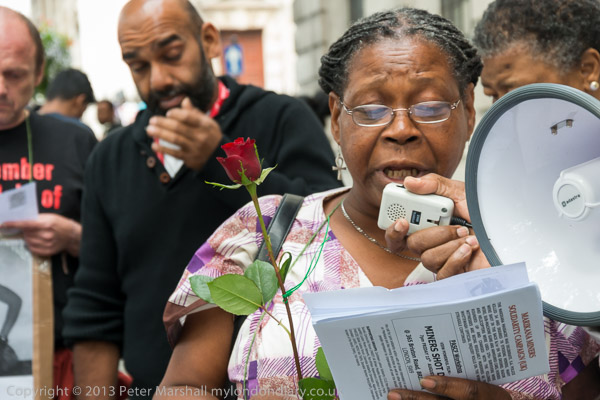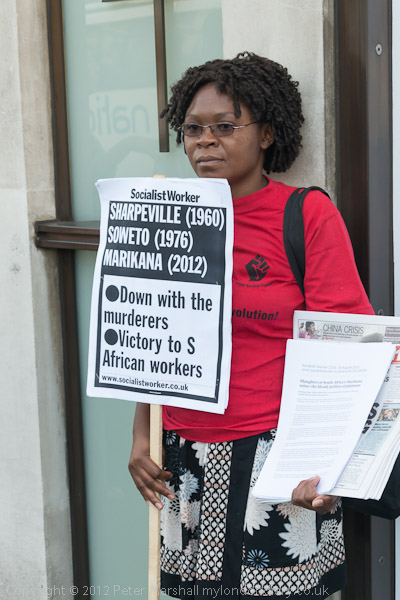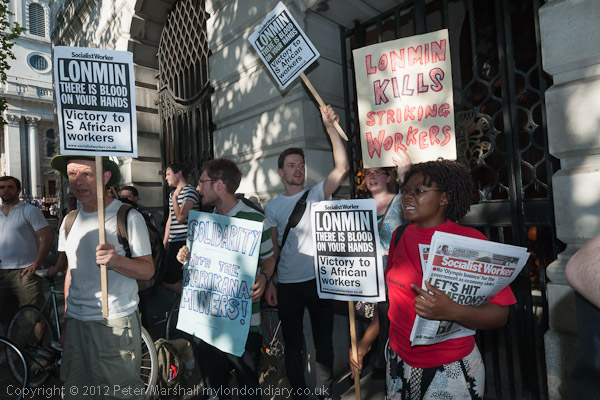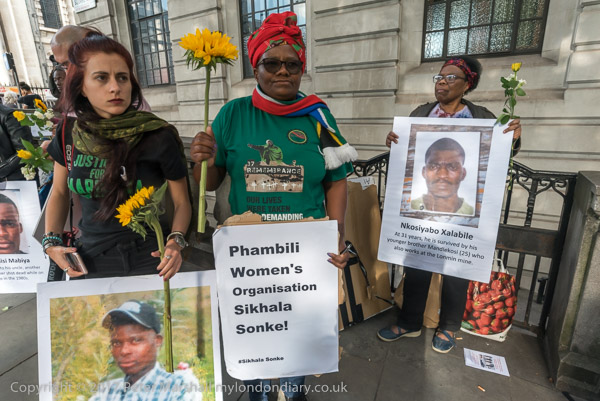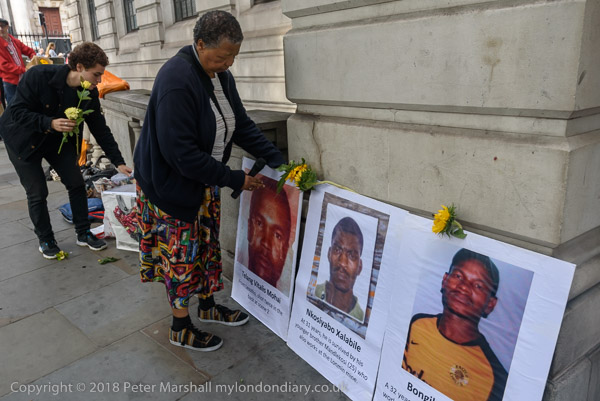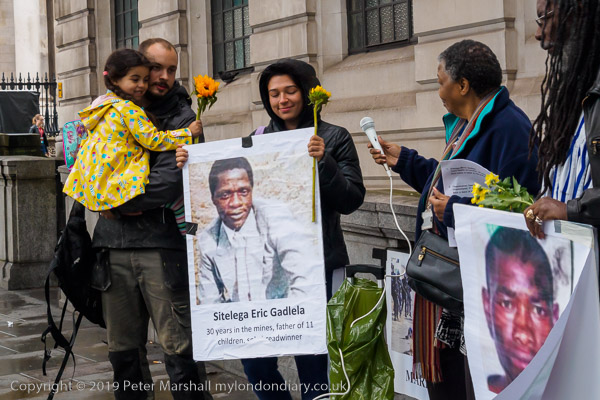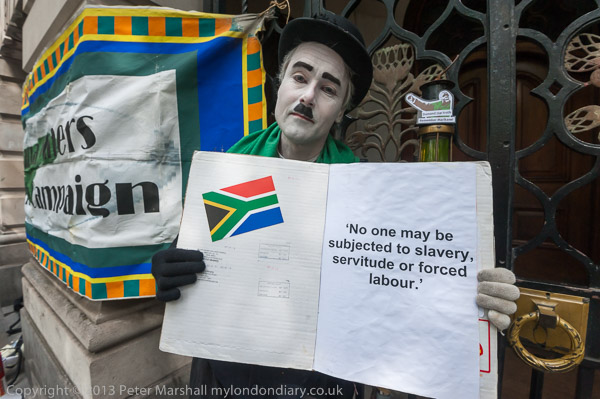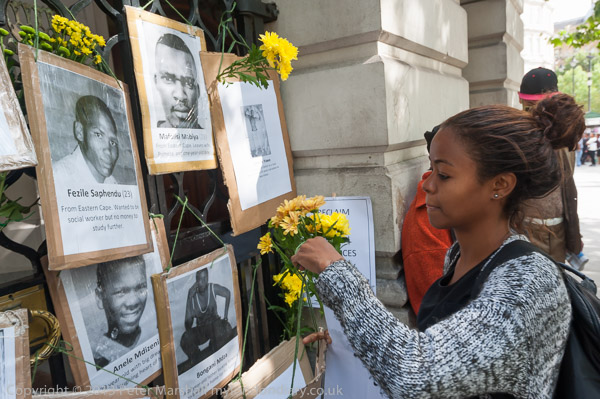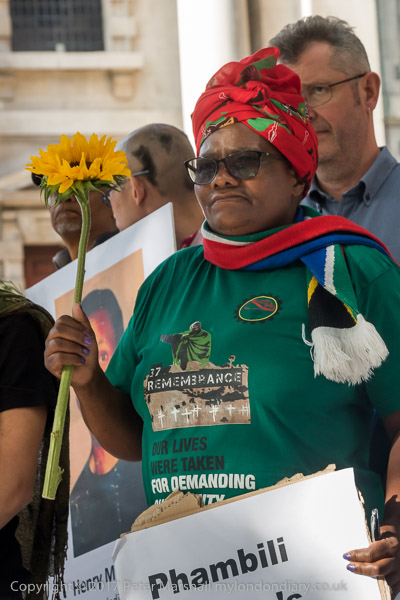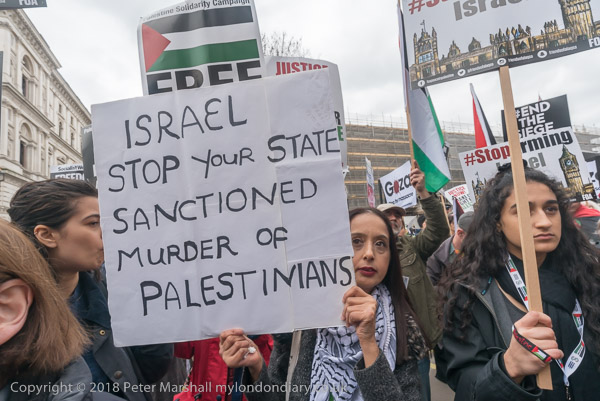
On Saturday 7th April 2018 around 2,000 came to Downing Street to condemn the shooting by Israeli snipers of peaceful unarmed Palestinian protesters on the first day of the Great March of Return, a peaceful protest at the separation wall in Gaza on Land Day, 30th March 2018.
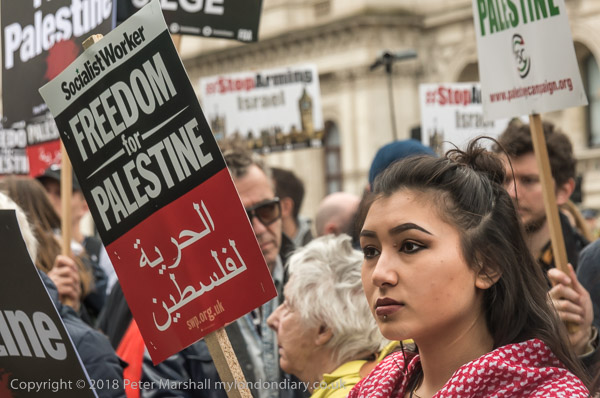
Live fire by the Israeli army had killed 17 and wounded over 750 unarmed protesters on that day. The second protest had taken place a week later on the day day before the London protest in this series of protests planned to continue in Palestine every Friday until Nakba Day (May 15th). Another nine Palestinians, one a journalist had been targeted and killed, and around 1,350 injured.
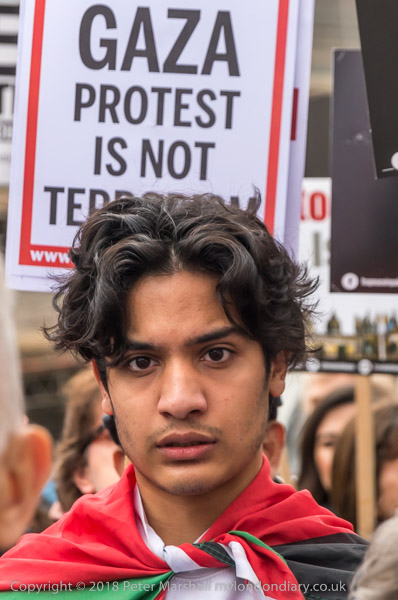
Many had been appalled by videos of the shooting, and by seeing Israeli citizens who had gone to watch and support the snipers who were shooting to kill.
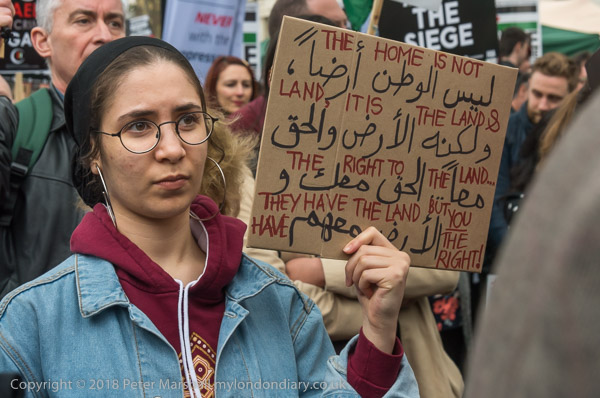
The UK parliament was in recess and there were few UK politicians at the event, with only Baroness Jenny Tonge and a Sinn Fein MP among the speakers, although both Jeremy Corbyn and Caroline Lucas had sent messages of support.
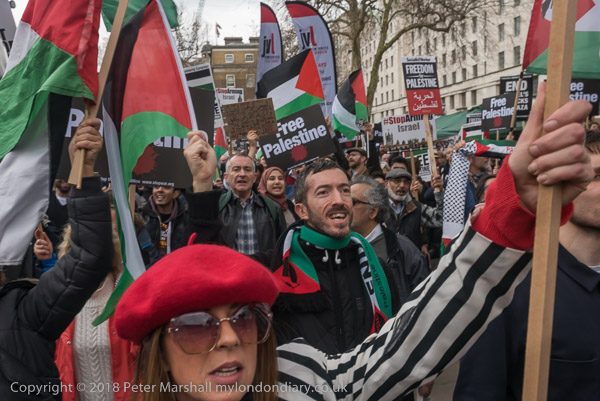
With the current threat of accusations of anti-Semitism being raised against any who speak out to support the Palestinians, perhaps some did not want to speak out in public, but there were many Jews at the protest, including those in Jewish Voice for Labour, many Jewish supports of the Palestine Solidarity Campaign and others including a group of ultra-orthodox anti-Zionist Neturei Karta members. A speaker from Jewdas recited a prayer for peace in Hebrew and then in English translation.
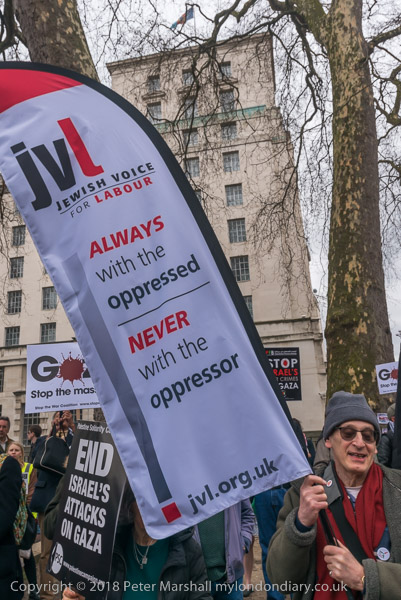
Among those who spoke at the event was Glen Secker of JVL, the captain of the Jewish Boat to Gaza in 2010. In 2018 he was suspended from membership of the Labour Party on a vague and unspecified accusation of anti-Semitism. Many other Jewish members of the Labour party, including the sons, daughters and grandchildren of holocaust survivors, have also been expelled from the party for the same reason.
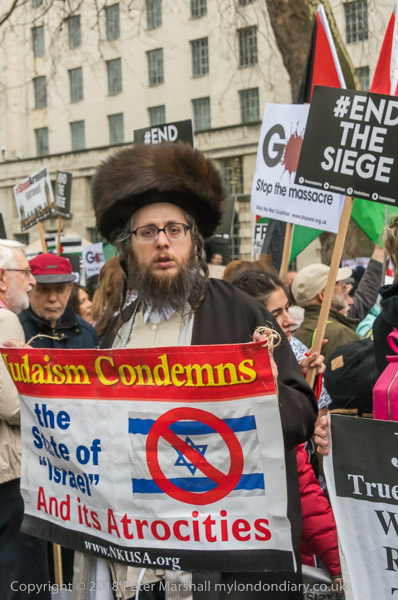
Other supporters of Palestine, including Jeremy Corbyn have been banned from standing as Labour candidates in what can only be seen as a witch-hunt.
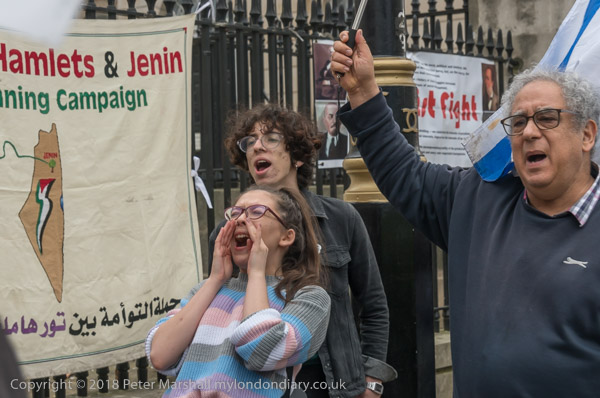
A few yards down the road were a handful of right-wing Zionist supporters waving Israeli flags and shouting slogans in support of the shootings and against Hamas. The few protesters who could hear them simply turned their backs on them and ignored them.
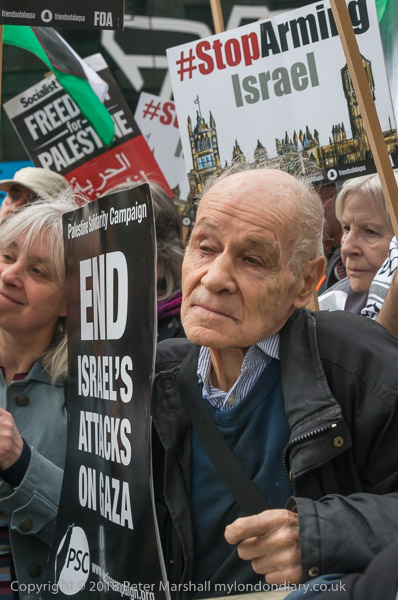
At the end of the protest the names of those murdered last week were read out and there was a two minute silence honouring them. The London protest was organised by the Friends of Al-Aqsa, Palestine Solidarity Campaign, Palestinian Forum in Britain and Stop the War, and supported by EuroPal, Olive and Muslim Association of Britain.
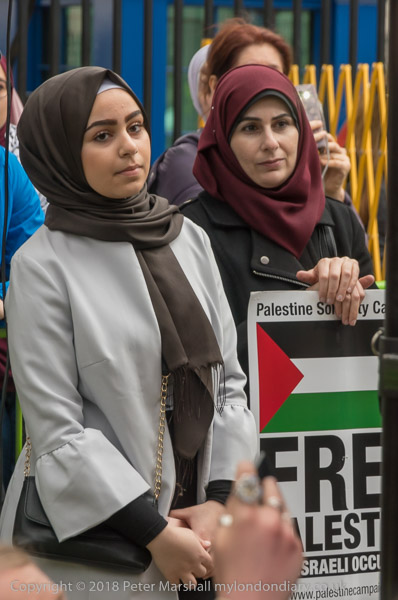
On My London Diary you can see photographs of many more of those at the event, including most of the speakers at Great March of Return – Stop the Killing.
